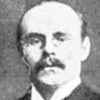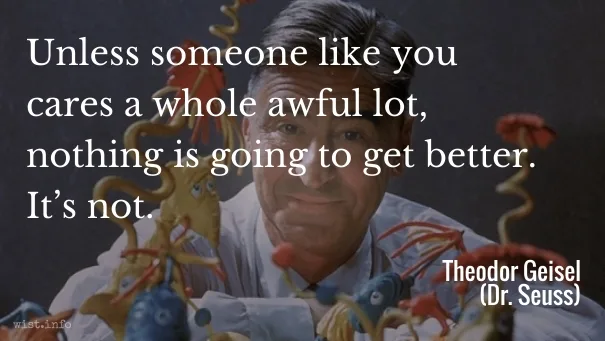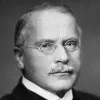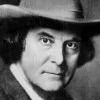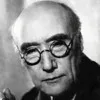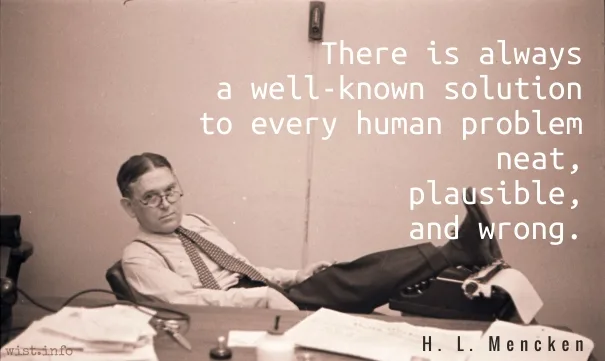If thou wilt be cured of thy Ignorance, confess it.
Thomas Fuller (1654-1734) English physician, preacher, aphorist, writer
Introductio ad Prudentiam, Vol. 1, # 84 (1725)
(Source)
Quotations about:
solution
Note not all quotations have been tagged, so Search may find additional quotes on this topic.
What do you think of Technocracy?
Nothing you can’t spell will ever work.Will Rogers (1879-1935) American humorist
Column (1933-01-04), “Daily Telegram: Will Rogers Interviews Forgotten Man”
(Source)
In later collections, only the answer is given.
The knowledge that one has a remedy within reach is often as effectual as the remedy itself, if not more so.
F. Anstey (1856-1934) English novelist and journalist (pseud. of Thomas Anstey Guthrie)
Tourmalin’s Time Cheques, ch. 2 “The Second Cheque” (1885)
(Source)
A complaint that’s not looking for a solution is a disease not looking for a cure.
Dennis Lehane (b. 1965) American novelist, screenwriter
Since We Fell (2017)
(Source)
A frequent saying of the character Brian Delacroix.
There is nothing as easy as denouncing. […] It don’t take much to see that something is wrong, but it does take some eyesight to see what will put it right again.
Will Rogers (1879-1935) American humorist
Column (1935-07-28), “Weekly Article: The Lawyers Talking”
(Source)
Whoever said money can’t solve your problems must not have had enough money to solve them.
Ariana Grande (b. 1993) American singer, songwriter, actress
“7 Rings”, Thank U, Next (2018)
(Source)
No problem of any consequence can be tackled head on.
Mignon McLaughlin (1913-1983) American journalist and author
The Neurotic’s Notebook, ch. 9 (1963)
(Source)
We cannot learn what causes violence and how we could prevent it as long as we are thinking in the traditional moral and legal terms. The only questions that this way of thinking can ask take the form: “How evil (or heroic) was this particular act of violence, and how much punishment (or reward) does the person who did it deserve?” But even if it were possible to gain the knowledge that would be necessary to answer those questions (which it is not), answers would still not help us in the least to understand what causes violence or how we could prevent it — these are empirical not moral questions.
James Gilligan (b. c. 1936) American psychiatrist and author
Preventing Violence, Introduction (2001)
(Source)
Like enough, you won’t be glad,
When they come to hang you, lad:
But bacon’s not the only thing
That’s cured by hanging from a string.Hugh Kingsmill (1889-1949) English biographer, literary critic, man of letters [pen name of Hugh Kingsmill Lunn]
“Two Poems, After A. E. Housman”, No. 1, st. 2 (1925)
(Source)
Houseman, writing to his brother, said of the parody: "It's the best I have seen, and indeed, the only good one."
HELENA: Our remedies oft in ourselves do lie,
Which we ascribe to Heaven.William Shakespeare (1564-1616) English dramatist and poet
All’s Well That Ends Well, Act 1, sc. 1, l. 222ff (1.1.222-223) (1602?)
(Source)
To be kind is more important than to be right. Many times, what people need is not a brilliant mind that speaks but a special heart that listens.
Thus, because we are rapidly advancing along this non-sustainable course, the world’s environmental problems will get resolved, in one way or another, within the lifetimes of the children and young adults alive today The only question is whether they will become resolved in pleasant ways of our own choice, or in unpleasant ways not of our choice, such as warfare, genocide, starvation, disease epidemics, and collapses of societies. While all of those grim phenomena have been endemic to humanity throughout our history, their frequency increases with environmental degradation, population pressure, and the resulting poverty and political instability.
Jared Diamond (b. 1937) American geographer, historian, ornithologist, author
Collapse: How Societies Choose to Fail or Succeed, Part 4, ch. 16 (2005)
(Source)
While we do our good works let us not forget that the real solution lies in a world in which charity will have become unnecessary.
Chinua Achebe (1930-2013) Nigerian novelist, poet, professor, critic [Albert Chinualumogu Achebe]
Anthills of the Savannah (1987)
(Source)
The problem of drugs, of divorce, of race prejudice, of unmarried pregnancy, and so on — as if evil were a problem, something that an be solved, that has an answer, like a problem in fifth grade arithmetic. If you want the answer, you just look in the back of the book. That is escapism, that posing evil as a “problem,” instead of what it is: all the pain and suffering and waste and loss and injustice we will meet our loves long, and must face and cope with over and over and over, and admit, and live with, in order to live human lives at all.
Ursula K. Le Guin (1929-2018) American writer
“The Child and the Shadow,” Quarterly Journal of the Library of Congress (Apr 1975)
(Source)
On the difficulty of "realistic fiction" for children to teach morality. First delivered as a speech; later reprinted in The Language of the Night (1979).
Artists and scientists realize that no solution is ever final, but that each new creative step points the way to the next artistic or scientific problem. In contrast, those who embrace religious revelations and delusional systems tend to see them as unshakeable and permanent.
Anthony Storr (1920-2001) English psychiatrist and author
Feet of Clay: Saints, Sinners and Madmen, Introduction (1996)
(Source)
Men have made an idol of luck as an excuse for their own thoughtlessness. Luck seldom measures swords with wisdom. Most things in life quick wit and sharp vision can set right.
Democritus (c. 460 BC - c. 370 BC) Greek philosopher
Frag. 119 (Diels) [tr. Bakewell (1907)]
(Source)
Bakewell lists this under "The Golden Sayings of Democritus." Freeman notes this as one of the Gnômae, from a collection called "Maxims of Democratês," but because Stobaeus quotes many of these as "Maxims of Democritus," they are generally attributed to the latter.Alternate translations:
- "Men have fashioned an image of Chance as an excuse for their own stupidity. For Chance rarely conflicts with intelligence, and most things in life can be set in order by an intelligent sharpsightedness." [tr. Freeman (1948)]
- "Men fashioned the image of chance as an excuse for their own thoughtlessness; for chance rarely fights with wisdom, and a man of intelligence will, by foresight, set straight most things in his life." [tr. Barnes (1987)]
The greatest skill in cards is to know when to discard; the smallest of current trumps is worth more than the ace of trumps of the last game.
[La mejor treta del juego es saberse descartar: más importa la menor carta del triunfo que corre que la mayor del que pasó.]
Baltasar Gracián y Morales (1601-1658) Spanish Jesuit priest, writer, philosopher
The Art of Worldly Wisdom [Oráculo Manual y Arte de Prudencia], § 31 (1647) [tr. Jacobs (1892)]
(Source)
(Source (Spanish)). Alternate translations:The true skill at play, is to know how to discard. The lowest Card that turns up, is better than the highest of the former dealing.
[Flesher ed. (1685)]The great trick in cards lies in knowing what to discard: and the deuce of a suit that is trump, is more valuable than the ace of a suit that was.
[tr. Fischer (1937)]The trick is to know what cards to get rid of. The least card in the winning hand in front of you is more important than the best card in the losing hand you just laid down.
[tr. Maurer (1992)]
A correct answer is like an affectionate kiss.
[Eine richtige Antwort ist wie ein lieblicher Kuß.]
Johann Wolfgang von Goethe (1749-1832) German poet, statesman, scientist
Sprüche in Prosa: Maximen und Reflexionen [Proverbs in Prose: Maxims and Reflections] (1833) [tr. Mann (1948)]
(Source)
See Proverbs 24:26.
(Source (German)). Alternate translation:A right answer is like a loving kiss.
[tr. Stopp (1995), "Posthumous," "On Literature and Life," #888]
Life is not a problem to be solved, but a reality to be experienced.
Søren Kierkegaard (1813-1855) Danish philosopher, theologian
(Misattributed)
Misattributed to Kierkegaard by Cyril Connolly, Horizon, vol. 11 (1945). More properly attributed to Jacobus Johannes van der Leeuw (1893–1934), The Conquest of Illusion, ch. 1: "The mystery of life in not a problem to be solved, it is a reality to be experienced."
I doubt if there is in the world a single problem, whether social, political, or economic, which would not find ready solution if men and nations would rule their lives according to the plain teaching of the Sermon on the Mount.
Franklin Delano Roosevelt (1882-1945) American lawyer, politician, statesman, US President (1933-1945)
Letter (1938-06-15) to Rev. Daniel Poling, “Greeting to the World’s Christian Endeavor Convention in Melbourne, Australia”
(Source)
It doesn’t matter whether the cat is black or white, as long as it catches mice.
In the crisis of this hour — as in all others that we have faced since our Nation began — there are plenty of recommendations on how to get out of trouble cheaply and fast. Most of them in the last analysis really come down to this: Deny your responsibilities.
Lyndon B. Johnson (1908-1973) American politician, educator, US President (1963-69)
Speech (1967-10-07), Democratic Party Dinner, Washington, D.C.
(Source)
Sometimes paraphrased "There are plenty of recommendations on how to get out of trouble cheaply and fast. Most of them come down to this: Deny your responsibility."
Often the fear of one evil leads us into a worse.
[Souvent la peur d’un mal nous conduit dans un pire.]
Nicolas Boileau-Despréaux (1636-1711) French poet and critic
The Art of Poetry [L’Art Poétique], Canto 1, l. 64 (1674)
(Source)
(Source (French)).
Though this sounds like a profound philosophical comment, in reality it refers to writers overcompensating for problems in their work. Soame (1892) translates this and the following line thus:A verse was weak, you turn it much too strong.
And grow obscure for fear you should be long.
This problem, when solved, will be simple.
Charles F. Kettering (1876-1958) American inventor, engineer, researcher, businessman
Sign at the General Motors research laboratories
(Source)
Quoted by Kettering in "Don't Be Afraid to Stumble," The Rotarian (Jan 1952)
The older I get, the more wisdom I find in the ancient rule of taking first things first — a process which often reduces the most complex human problems to manageable proportions.
The only problems that have simple solutions are simple problems. The only managers that have simple problems have simple minds. Problems that arise in organisations are almost always the product of interactions of parts, never the action of a single part. Complex problems do not have simple solutions.
When a mess, which is a system of problems, is taken apart, it loses its essential properties and so does each of its parts. The behavior of a mess depends more on how the treatment of its parts interact than how they act independently of each other. A partial solution to a whole system of problems is better than whole solutions of each of its parts taken separately.
In reactive problem solving we walk into the future facing the past — we move away from, rather than toward, something. This often results in unforeseen consequences that are more distasteful than the deficiencies removed.
A problem never exists in isolation; it is surrounded by other problems in space and time. The more of the context of a problem that a scientist can comprehend, the greater are his chances of finding a truly adequate solution.
Successful problem solving requires finding the right solution to the right problem. We fail more often because we solve the wrong problem than because we get the wrong solution to the right problem.
In political institutions, almost everything we call an abuse was once a remedy.
[Presque tout ce que nous appelons un abus fut un remède dans les institutions politiques.]
Joseph Joubert (1754-1824) French moralist, philosopher, essayist, poet
Pensées [Thoughts], ch. 18 “Du Siècle [On the Age],” ¶ 21 (1850 ed.) [tr. Auster (1983), 1813 entry]
(Source)
(Source (French)). Alternate translation:In political institutions nearly everything that we now call an abuse, was once a remedy.
[tr. Lyttelton (1899), ch. 17, ¶ 8]
Questions show the mind’s range, and answers, its subtlety.
[Les questions montrent l’étendue de l’esprit, et les réponses sa finesse.]Joseph Joubert (1754-1824) French moralist, philosopher, essayist, poet
Pensées [Thoughts], ch. 4 “De la Nature des Esprits [On the Nature of Minds],” ¶ 62 (1850 ed.) [tr. Lyttelton (1899), ch. 3, ¶ 21]
(Source)
(Source (French))
While confirmed as an entry in the French, I was unable to find translations other than Lyttelton's in my various sources.
That’s just the trouble, Sam Houston — it’s always my move. And damnit, I sometimes can’t tell whether I’m making the right move or not. Now take this Vietnam mess. How in the hell can anyone know for sure what’s right and what’s wrong, Sam? I got some of the finest brains in this country — people like Dean Rusk, Walt Rostow, and Dean Acheson — making some strong and convincing arguments for us to stay in there and not pull out. Then I’ve got some people like George Ball and Fulbright — also intelligent men whose motives I can’t rightly distrust — who keep telling me we’ve got to de-escalate or run the risk of a total war. And, Sam, I’ve got to listen to both sides. […] I’ve just got to choose between my opposing experts. No way of avoiding it. But I sure as hell wish I could really know what’s right.
Lyndon B. Johnson (1908-1973) American politician, educator, US President (1963-69)
Comment (1968-02) to Sam Houston Johnson
(Source)
Recalled in Sam Houston Johnson, My Brother Lyndon, ch. 1 (1969).
If a problem has no solution, it may not be a problem, but a fact, not to be solved, but to be coped with over time.
Shimon Peres (1923-2016) Polish-Israeli politician, statesman
(Attributed)
Widely attributed to Peres in different sources. Quoted in the Wall Street Journal (7 Feb 2001). Donald Rumsfeld says that Peres made the observation to him.
DESTRUCTION: It’s astonishing how much trouble one can get oneself into, if one works at it. And astonishing how much trouble one can get oneself out of, if one simply assumes that everything will, somehow or other, work out for the best.
Neil Gaiman (b. 1960) British author, screenwriter, fabulist
Sandman, Book 10. The Wake, # 72 “Chapter 3, In Which We Wake” (1995-11)
(Source)
It is the greatest of all mistakes to do nothing because you can only do little. Do what you can.
Sydney Smith (1771-1845) English clergyman, essayist, wit
Lecture (1804-1806), Moral Philosophy, No. 19 “On the Conduct of the Understanding, Part 2” Royal Institution, London
(Source)
Collected in Elementary Sketches of Moral Philosophy (1849).
It is not always by plugging away at a difficulty and sticking at it that one overcomes it; but, rather, often by working on the one next to it. Certain people and certain things require to be approached on an angle.
A rain came along last night and gently wet San Diego. It cleaned off my car except for a stubborn bird blessing on the hood. I had been staring at it for several days and the rain cleaned everything except that single spot. (sigh) For the most part, things take care of themselves if we just let them, but every now and again we’ve got to get involved, and dirty our hands.
Many are stubborn in pursuit of the path they have chosen, few in pursuit of the goal.
[Viele sind hartnäckig in Bezug auf den einmal eingeschlagenen Weg, Wenige in Bezug auf das Ziel.]
Friedrich Nietzsche (1844-1900) German philosopher and poet
Human, All Too Human [Menschliches, Allzummenschliches], Part 1, ch. 9 “Man Alone with Himself [Der Mensch mit sich allein],” ¶ 494 (1878)
(Source)
This is a frequent translation of this passage, but I cannot find the original translator.
(Source (German)). Alternate translations:Many are obstinate with regard to the once-chosen path, few with regard to the goal.
[tr. Zimmern (1909)]Many people are obstinate about the path once it is taken, few people about the destination.
(tr. Faber/Lehmann (1984)]Many are obstinate with regard to the path once they have entered upon it, few with regard to the goal.
[tr. Hollingdale (1986)]
Explanations exist; they have existed for all time; there is always a well-known solution to every human problem — neat, plausible, and wrong.
H. L. Mencken (1880-1956) American writer and journalist [Henry Lewis Mencken]
“The Divine Afflatus,” New York Evening Mail (16 Nov 1917)
(Source)
Reprinted in Prejudices: Second Series (1920) and A Mencken Chrestomathy, ch. 25 (1949).
Variants:
- "There is always an easy solution to every human problem -- neat, plausible, and wrong."
- "For every complex problem, there is a solution that is simple, neat, and wrong."



